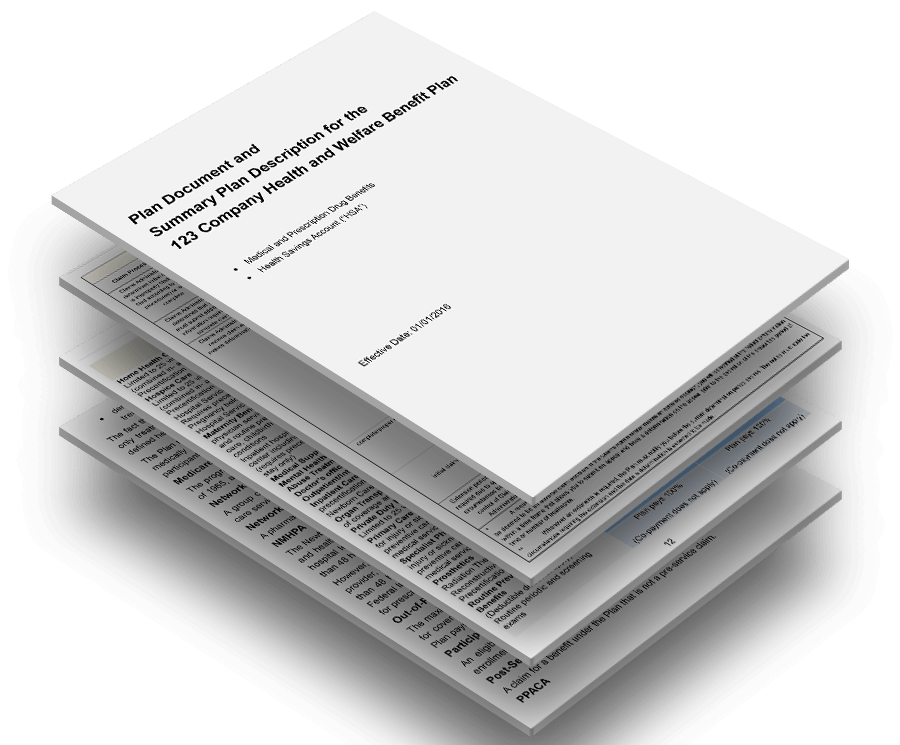Employers of all sizes have extensive obligations when it comes to sponsoring employee health and welfare benefit plans. Having compliant written plan documents is essential and has become even more important as plan audit and enforcement activities have increased in recent years. It isn’t a matter of “if” a plan is audited, but “when.”
As the March 15 corporate tax filing deadline approaches, California’s small businesses need to know they may qualify for an important health care tax credit available under the Affordable Care Act.
The Small Business Health Care Tax Credit provides a credit equaling up to 35 percent of the health insurance premium costs that a small business incurred for insuring its employees. The credit is designed to help small businesses and tax-exempt organizations that primarily employ moderate and lower-income workers either maintain existing coverage or offer health insurance to their employees for the first time.
Certified Public Account and tax expert Conrad Davis, Crowe Horwath LLP, explains that more businesses need to be made aware of this benefit of the law aimed at small employers.
“Right now the credit is underutilized,” Davis said in an interview with CalChamber News. “The studies show that not as many businesses that are eligible are participating.”
According to a recent study, more than 375,000 small businesses in California are eligible for health insurance tax credits for a total value of more than $1.8 billion.
Small employers that pay at least half of the premium for employee health insurance coverage may be eligible for the Small Business Health Care Tax Credit, according to the Internal Revenue Service (IRS).
CalChamber News has the full story, including more details on which employers qualify for the tax credit.
Tags: IRS, health care tax credit for employers, small business health care tax credit, HR Allen Consulting Services, HR Informant, health care reform
The Internal Revenue Service (IRS) released updated income-tax withholding tables for 2013 reflecting recent changes by Congress to address the “fiscal cliff.”
The updated income tax withholding tables show the new rates in effect for 2013 and supersede the tables issued on December 31, 2012. The updated tables contain the percentage method income-tax withholding tables and related information that employers need to implement these changes.
According to the IRS:
Tags: IRS, 2013 income tax withholding tables, income tax withholding tables, Internal Revenue Service, payroll taxes, W-4 form, employees, HR Allen Consulting Services, Employers, HR Informant
The Internal Revenue Service today issued the 2013 optional standard mileage ratesused to calculate the deductible costs of operating an automobile for business, charitable, medical or moving purposes.
The rates take effect on January 1, 2013. According to the IRS, the standard mileage rates for the use of a car (also vans, pickups or panel trucks) will be:
Tags: business miles driven, IRS, IRS standard mileage rate 2013, HR Allen Consulting Services, HR Informant
The Internal Revenue Service (IRS) announced cost of living adjustments affecting dollar limitations for pension plans and other retirement-related items for Tax Year 2013.
In general, many of the pension plan limitations will change for 2013 because the increase in the cost-of-living index met the statutory thresholds that trigger their adjustment. However, other limitations will remain unchanged because the increase in the index did not meet the statutory thresholds that trigger their adjustment.
The IRS adjustments make changes to:
Tags: IRS, pension plan limitations for 2013, HR Allen Consulting Services, HR Informant
The Internal Revenue Service released a questions and answers document (Rev. Rule 2012-18) that provides guidance on how taxes are imposed on tips under the Federal Insurance Contributions Act (FICA).
The guidance includes an explanation of employer and employee obligations. It is the employer’s obligation to withhold “the employee share of FICA taxes on the reported tips from the wages of the employee (other than tips) or from other funds made available by the employee for this purpose.”
The guidance also includes information on:
Tags: IRS, employee tips, employer withholding, FICA, FICA taxes, reporting tips to employers, HR Allen Consulting Services, HR Informant
Regardless of the industry or size of the business, employers are responsible for the correct classification of their workers. Failure to correctly classify a worker as an employee or independent contractor can make the mistaken employer responsible not only for the worker’s back employment taxes, but also penalties, warns the IRS.
Tags: IRS, contractor, 1099, W-2, HR Allen Consulting Services, HR Informant, employee
Tags: IRS, deductible amount, health savings account, high deductible health plan, increase, out of pocket medical expenses, HR Allen Consulting Services, HR Informant
Tags: health insurance, IRS, Health Cost, Insurance Cost, IRS Reporting
The Internal Revenue Service today issued the 2012 optional standard mileage rates used to calculate the deductible costs of operating an automobile for business purposes.
Beginning Jan. 1, 2012, the standard mileage rates for the use of a car (also vans, pickups or panel trucks) will be 55.5 cents per mile for business miles driven. The rate for business miles driven is unchanged from the mid-year adjustment that took effect on July 1, 2011.
The standard mileage rate for business is based on an annual study of the fixed and variable costs of operating an automobile, conducted by Runzheimer International.
Taxpayers always have the option of calculating the actual costs of using their vehicle rather than using the standard mileage rates.
A taxpayer may not use the business standard mileage rate for a vehicle after using any depreciation method under the Modified Accelerated Cost Recovery System (MACRS) or after claiming a Section 179 deduction for that vehicle. In addition, the business standard mileage rate cannot be used for more than four vehicles used simultaneously.
These and other requirements for a taxpayer to use a standard mileage rate to calculate the amount of a deductible business, moving, medical or charitable expense are in Rev. Proc. 2010-51.
Notice 2012-01 contains the standard mileage rates, the amount a taxpayer must use in calculating reductions to basis for depreciation taken under the business standard mileage rate, and the maximum standard automobile cost that a taxpayer may use in computing the allowance under a fixed and variable rate plan.
Internal Revenue Service
Tags: business miles driven, IRS, 2012, standard mileage rate





















